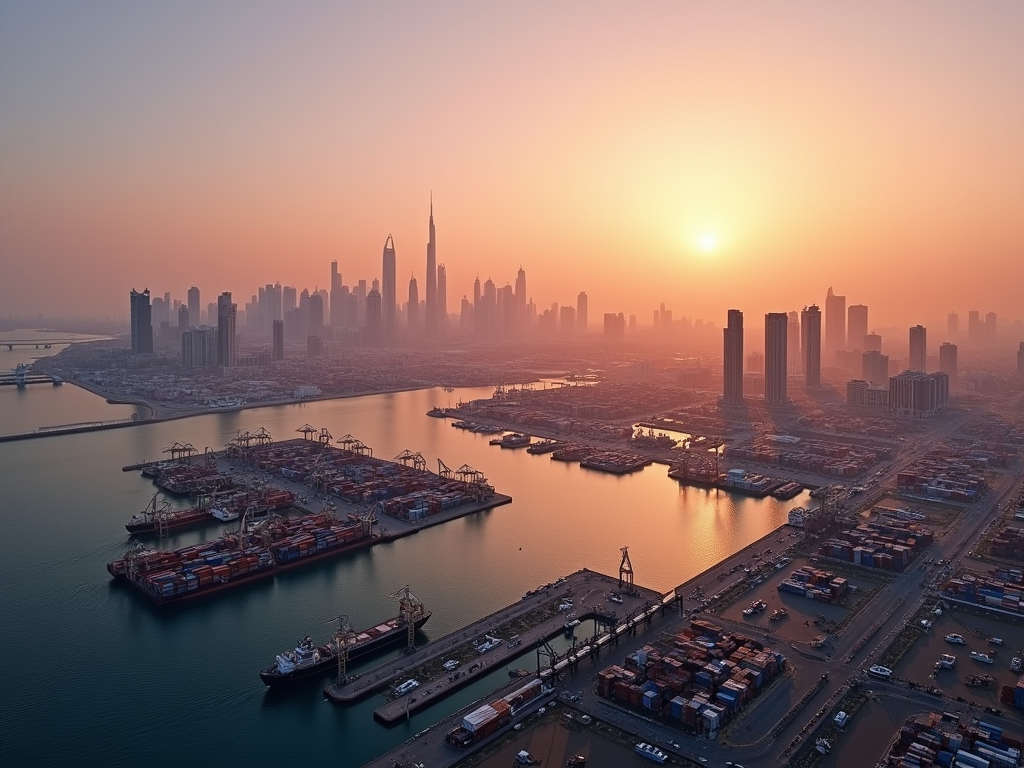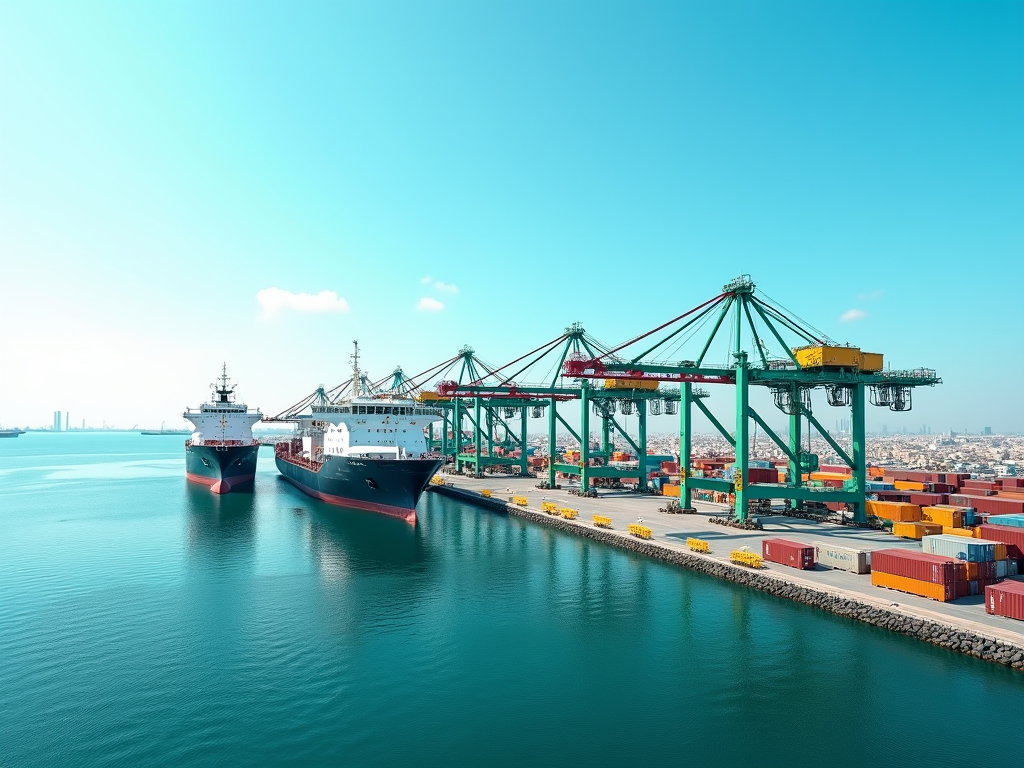Dubai’s smart ports are crucial players in the evolving landscape of global trade, serving as logistical hubs that streamline the flow of goods and services across international borders. By integrating cutting-edge technology and strategic geographic positioning, these ports have transformed Dubai into a central artery for trade between continents. Their role goes beyond simple cargo handling; they enhance efficiency, security, and sustainability, reinforcing Dubai’s position as a leading global gateway. This article delves into the key features of Dubai’s smart ports, their impact on international trade, and their future potential in the supply chain.
The Transformation to Smart Ports

The transformation of Dubai’s ports into smart ports reflects broader global trends towards digitization and innovation in the transport sector. The smart port concept involves the use of advanced technologies, including the Internet of Things (IoT), artificial intelligence (AI), and big data analytics. These technologies enable real-time tracking of shipments, optimized logistics, and enhanced operational efficiency. The process includes:
- Implementing IoT sensors for monitoring cargo conditions.
- Utilizing AI algorithms for predictive analytics.
- Integrating blockchain for secure and transparent transactions.
- Developing mobile apps for real-time updates and notifications.
- Creating automated systems for faster cargo handling and processing.
This technological revolution is not just about efficiency; it also brings about a significant improvement in safety and security protocols, reducing risks and potential losses in global trade.
The Strategic Importance of Dubai’s Location

Dubai’s strategic geographical location enhances its role as a global trade hub. Positioned at the crossroads of Europe, Asia, and Africa, Dubai serves as a nexus for shipping routes and air freight connections. This advantageous positioning has enabled its ports to facilitate a vast array of trade flows, including:
- Transshipments between different continents.
- Imports and exports of goods from emerging markets.
- Quick access to major shipping lanes, significantly reducing transportation times.
- Consolidation points for multinational corporations seeking efficient distribution.
- Support for an array of industries, from oil and gas to technology and retail.
As a result, Dubai’s ports not only cater to local demands but also play a vital role in the global supply chain, illustrating how location and technology converge to drive trade growth.
Innovation is at the heart of Dubai’s smart ports, contributing significantly to enhanced trade facilitation. This encompasses developing a digital ecosystem that supports seamless exchange of information across all stakeholders. Initiatives such as creating port community systems allow for greater collaboration among shipping companies, freight forwarders, customs authorities, and logistics providers. Key innovations include:
- Digital customs clearance reducing bottlenecks.
- Automated storage and retrieval systems increasing warehouse efficiency.
- Smart logistics solutions that optimize transport routes and reduce emissions.
- Data analytics platforms that provide insights into market trends.
- Enhanced cybersecurity measures protecting data and operations.
Through these innovations, Dubai’s ports not only meet current demands but are also future-proofed to accommodate the evolving nature of global trade.
Environmental Sustainability in Smart Ports
As global trade continues to grow, so does the need for sustainable practices. Dubai’s smart ports are proactively addressing environmental concerns by implementing eco-friendly operations. Initiatives aimed at reducing the carbon footprint and promoting sustainable logistics are becoming standard practice. Important measures include:
- Utilization of green technologies in port operations.
- Incorporating electric vehicles for transport within port facilities.
- Adopting renewable energy sources such as solar power.
- Implementing waste reduction and recycling programs.
- Investing in research and development for sustainable materials and processes.
These efforts not only benefit the environment but also align with global trade practices focused on sustainability, positioning Dubai’s smart ports as leaders in eco-conscious shipping and logistics.
Conclusion
In conclusion, Dubai’s smart ports play a transformative role in global trade, merging advanced technology with strategic geographical advantages. By focusing on efficiency, security, innovation, and sustainability, these ports are not only enhancing Dubai’s competitive edge in international shipping but are also setting benchmarks for others to follow. As global trade continues to evolve, the ongoing advancements in Dubai’s smart ports will undoubtedly influence the future landscape of international commerce.
Frequently Asked Questions
1. What are smart ports?
Smart ports are ports that utilize advanced technologies, including IoT, AI, and blockchain, to enhance efficiency and automate processes in logistics and cargo handling.
2. How do Dubai’s smart ports contribute to sustainability?
They implement eco-friendly operations, such as using renewable energy, electric vehicles, and recycling programs, to reduce their environmental impact.
3. Why is Dubai strategically important for global trade?
Dubai is located at the crossroads of Europe, Asia, and Africa, making it a central hub for shipping routes and air freight connections.
4. What innovations are present at Dubai’s smart ports?
Innovations include digital customs clearance, automated logistics solutions, and advanced data analytics platforms for market insights.
5. How do smart ports improve cargo security?
Smart ports enhance cargo security through advanced technologies such as blockchain for transaction transparency and robust cybersecurity measures to protect data and operations.
